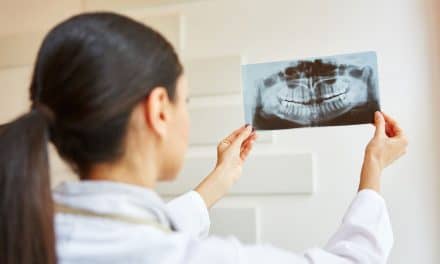7/07/08
According to a study conducted by Liran Levin, DDS, a dentist from the Department of Oral Rehabilitation in the School of Dental Medicine at Tel Aviv University, teens with oral piercings are at high risk for tooth fractures and gum disease.
“There are short-term complications to piercings in low percentages of teens, and in rare cases a piercing to the oral cavity can cause death,” said Levin. “Swelling and inflammation of the area can cause edema, which disturbs the respiratory tract.”
Levin warns that the most common concerns—tooth fracture and periodontal complications—are long-term.
“There is a repeated trauma to the area of the gum,” said Levin. “You can see these young men and women playing with the piercing on their tongue or lip. This act prolongs the trauma to the mouth and in many cases is a precursor to anterior tooth loss.”
In the study, the researchers surveyed teens with and without piercings and asked them a number of questions about their oral health, their knowledge of the risk factors associated with piercings, and about their piercing history, before conducting the clinical oral exams.
Levin noted that the youngsters who opted for oral piercings were very concerned about body image, but seemed to be unaware of the future risks that they can cause.
According to Levin and his colleagues, teens should avoid getting their mouths pierced. If the teen insists, then it’s essential that piercing tools are disposable, and that all other equipment is cleaned in an onsite autoclave to help reduce infection. After the procedure, the area should be rinsed regularly with a chloroxidine-based mouthwash for 2 weeks. The teen should also avoid playing with the piercing and clean it on a regular basis. Calculus deposits on the piercing may form over time and should be removed by a dentist. Checkups should be made regularly.
[Science Daily, June 24, 2008]



